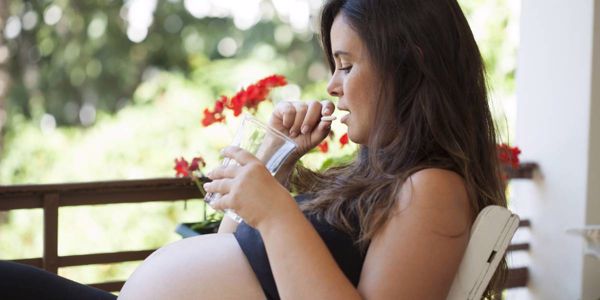NOTE: This blog is just intended as advice, I am not a doctor. If you are suffering and think it is serious, please speak to your doctor. If you are breastfeeding, please check with your doctor before taking supplements.
Hi, I’m Rachel, the founder of Our Remedy, a female-focused wellness brand that cares for your cycle, whether that’s your period, pregnancy or menopause.
It was my (long) journey trying to conceive that got me into supplements, and since then, I have been hooked. There are so many natural alternatives out there, and no matter what symptom you’re having, there’s something you can do about it in a gentle and natural way.
I struggled a lot in the first few weeks after giving birth with a feeling of guilt, I had had IVF to have my son, and yet I didn’t feel as overjoyed as I thought I was meant to feel. This led me to feeling sad. I was desperate for my baby and had tried so hard to have him. Why did I feel this way?
After giving birth, your estrogen levels drop dramatically and usually takes around three months to return to normal. When you experience low estrogen, you're more likely to feel anxious, stressed and a little depressed. Throw in limited sleep, and you may start questioning your sanity.
That’s where supplements for maternal mental health come in. And, new mums, you’ll love this - they’re all in capsules for speed and convenience.
It is so important to look after yourself after pregnancy, yes, you have a little one to care for, but supplements for maternal mental health may be able to help you be the best version of yourself, which your baby needs.
If you’re struggling with feeling a little down, here are our top five supplements for maternal mental health that may help with anxiety, depression or stress.
Note: if breastfeeding, please consult your doctor
Folic Acid
It may surprise you to see this as it is the most talked about supplement before you have a baby, but it is actually really important to take after too. Your body has just been through a huge transformation and is now trying to heal. It is the healing process that requires folic acid to promote new cell growth.
You should check with your doctor, but most will say that folic acid passed through breast milk is really beneficial for your baby too.
So, if you have some still knocking around from those first vital few weeks, it’s time to get them back out.
Probiotics
Probiotics are all about balancing the bacteria in your gut. The idea is that a healthy gut is a healthy mind, making this a really important supplement for maternal mental health.
Your gut and brain are intrinsically linked. If you think about it, you’ll realise how important this is.
If you feel nervous about something, what happens? You get a funny feeling in your tummy and even need to run to the loo sometimes; it's that strong.
If you keep your gut healthy, you’re far more likely to feel happy, well balanced and less depressed after having a baby.
Magnesium
Two of the main benefits of magnesium are that it can help reduce stress and improve sleep.
Now, I’m sorry to mention the S word if you aren’t getting much, but after I had my baby, I found that I slept so lightly that even when he did start sleeping for six (blissful) hours, I would wake and not be able to go back to sleep. So frustrating!
Magnesium is a natural sedative, you will definitely still wake to hear your baby, but it may help your sleep quality improve, and when you do get a few hours in, you want it to be quality! This, in turn, should help with feelings of stress, making this a great supplement to take for maternal mental health.
Ashwagandha
Low levels of estrogen after birth can cause you to feel a little more anxious.
There is an aspect of this which is very natural and even important after having a baby, your primal instinct to worry more will kick in. However, if you feel it is affecting you a little more than just keeping your baby safe, you may want to try this natural herb.
Ashwagandha may also be a huge support for your energy levels, something that will need to remain consistent now you have a little one to care for.
Note: There is no research around taking ashwagandha if you are breastfeeding, so please check with your doctor.
Vitamin D
Most of us are deficient in Vitamin D here in the UK, with such limited sun, and after you have had a baby, it is really important to ensure you are on top of these levels.
Low levels of Vitamin D mean you will be more likely to feel depressed, so this is a really important supplement for maternal mental health. If your Vitamin D levels are as they should be, most experts believe you are much less likely to suffer from postnatal depression.
Furthermore, most doctors agree that if you are breastfeeding, you should be taking this supplement for your baby, too. It will be really beneficial for them too.
So there we go, there are my top supplements for maternal mental health!







